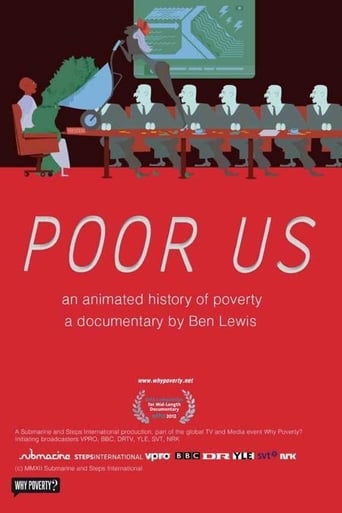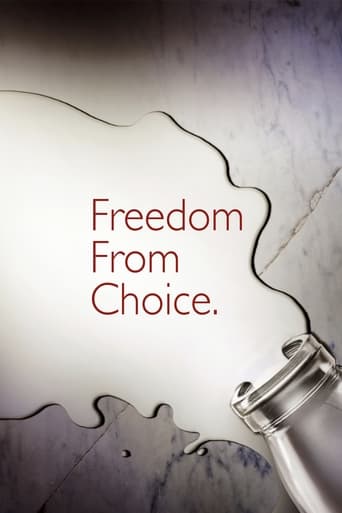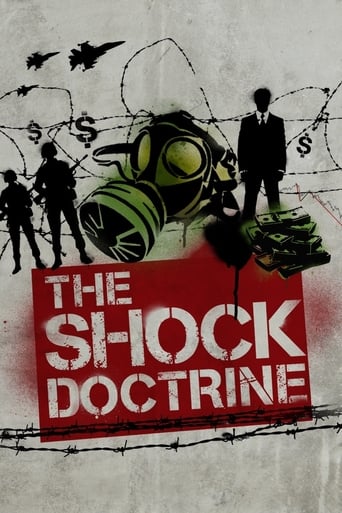
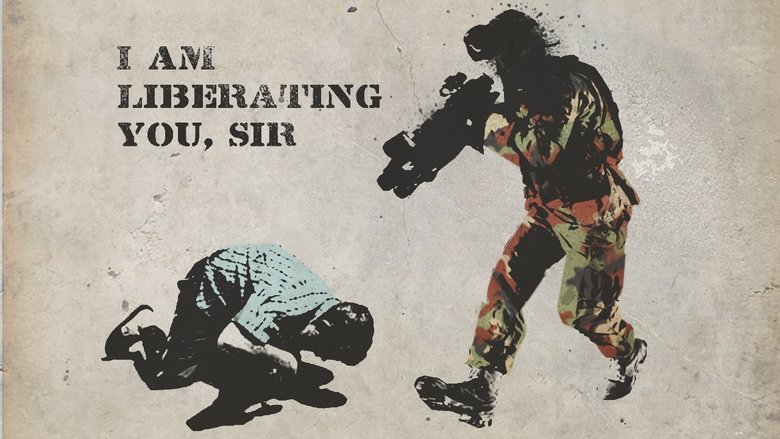
The Shock Doctrine (2009)
An investigation of "disaster capitalism", based on Naomi Klein's proposition that neo-liberal capitalism feeds on natural disasters, war and terror to establish its dominance.
Watch Trailer
Cast
Similar titles
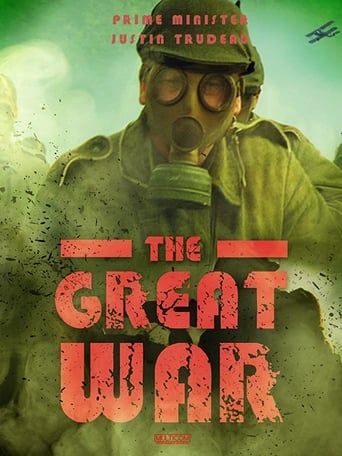

Reviews
the audience applauded
Just perfect...
After playing with our expectations, this turns out to be a very different sort of film.
The best films of this genre always show a path and provide a takeaway for being a better person.
It is as old as humankind is, but we only react when our stomachs are empty (and that is not a privilege of Marxist regimes). All over the world the ordinary people look the other way when told that actions have always been taken to control our planet (and of course its economy). I was not surprised with what I saw and heard in this fine documentary, but my info about the who, what, where and when of the whole Neoliberalism business was too vague. Therefore, when I see a film like this I appreciate to be illustrated, but I am mainly surprised at the wickedness of some human beings. My only regret is that "The Shock Doctrine" is a product from a specific time; it was made in the first decade of this century, so it ends with the Obama government. Nevertheless, the information it gives us is still valid to analyze the present. If you prefer to label this as leftist, propaganda or biased thought, well, it is your right to do so and believe in what you want. From my perspective, I do believe that such option leads us all to remain blindfold. I do not pretend things are exactly as described here, but the film does help to make us aware, a bit wiser and conscious that our rights are violated on a daily basis. We best stop believing it happens in "other countries". All of us, up and down, left and right, white and black, are subject to the decisions of evil, greedy persons, persons as those that were expelled from the temple in the Bible, as those that complain about the holocaust they were victim of, without thinking about all the wrong they do to people around the globe with their avaricious economic plans.
I read all the other reviews about the film, not the book. The divergent opinions and points of view on the case Klein makes for the harmful principals of the Milton Friedman values of an outright free market system and the erroneous view that it promotes social freedoms and vice-versa even and especially by using Shock Programs to stimulate an economy into Free Market, is a view of the case I share with Naomi Klein. I don't however, at least no more, believe in the Keynesian economics principal as the unfolding of events in the global economy of today disprove its theory's conclusion; time has disproven that.The movie, if you listen carefully to the words and the message of Klein, is a challenge for all of us not to accept any theory that sounds like the words of a preacher. Instead we're to listen to our hearts and mostly our reason and then only, do something about it instead of contributing to our society's demise by doing nothing. The wisest advice any person can ever give, receive or act upon is learning from history and not allow it to be erased for the benefit of the few pariahs.
My 15 year old son came home with this "documentary" yesterday, and I decided that I better keep an eye on what he was watching.While I will credit the tremendous amount of research that went into this movie, I would have to say that it is fiction based on true historical events. The communist spin that was put on this is abysmal. Don't get me wrong, while being a firm believer in an open market system, I do see the pros and cons of both Capitalism and Socialism. However, this story only looks at the dirty underbelly of the free market system while allowing the viewer to believe that living in Soviet Russian or East Germany was as fine as a summer frolic on the beach until evil capitalists defeated the communist way and ruined the whole party. They even make the fall of the Berlin Wall seem like a tragedy that capitalists couldn't wait to exploit. The use of the same propaganda phrases used over and over again in this movie sickened me on more than one level. Comparing Capitalism to shock therapy, which was linked to and compared to torture and interrogation methods. They then made reference to (insert capitalist pig here) using any political, social, or environmental tragedy as "instigating the shock treatment" or simply "the shock" by using it as a way to defeat the will of the people who they are enforcing their capitalist regime on.At the end of the movie, I felt that I had to have a debriefing session with my son and his friend. While many of the unfortunate events that took place in the film were indeed blood on the capitalists hands, there is more blood on the hands of socialism/slash communism than even the Third Reich. I had to explain to him that while there was a rough transition from communism to capitalism in Eastern Europe, it was not unfortunate event that the Soviet Union broke and the Berlin Wall came down. I had to inform him that it was no picnic living in the Soviet states and that many had risked and lost their lives in order to climb the wall or flee other Communist states. It really is a shame that people forget history and that it really is doomed to repeat itself. I would recommend anybody who watched this to balance it out by learning about the bloody rise to power by the Soviets. Watch a documentary about Stalin, or the Chernobyl melt down and how the Soviets mishandled it and allowed their own people to suffer by having too much pride for western help. The bottom line here is that films like this are powerful form of propaganda and should be taken with a rather large grain of salt. It's just too bad that impressionable 15 year olds lack the knowledge, experience, and reasoning that is needed to watch this.2 stars is generous and is only given because the video was well researched and well made.
"You were such a super lady!" - Mike Yanagita (Fargo)Michael Winterbottom, one of Britain's more daring film-makers, takes a break from feature films to direct "The Shock Doctrine", an interesting documentary based on a book by Canadian journalist Naomi Clein.The documentary essentially says three things. Firstly, that big corporations in search of new markets benefit when governments import a neoliberal economic system, often as a result of pressure from the US, and that this often has catastrophic consequences for ordinary people.Secondly, that political leaders have turned to "brutality and repression" to crush protests against their ideologically inspired programmes of privatisation, deregulation and tax cuts.And thirdly, that certain "shocking events" (The Falkland War, The Gulf Wars, coups in Chile, Argentina and Russia, Hurricane Katrina, 9/11 etc) have been used, or even created, for the purpose of stealthily introducing unpopular reforms in the wake of these crises.So essentially something big and bad is designed to happen in order to distract the populace from some sneaky law being implemented, or some massive privatization deal being granted. IE- capitalists have taken advantage of natural and man-made disasters in order to promote their free market ideals, or outright concocted such shocks.Unfortunately, whatever merits the documentary has are eroded by its overly ominous, overly conspiratorial tone. Winterbottom sees macro plots and macro conspiracies, instead of chaos and confusion. He sees complex plans and careful scheming instead of a more general exploitation of opportunity. Yes, the film offers great analysis of corporatism and various authoritarian governments, and highlights how crises are used by governments to coerce people, but this shouldn't be surprising to anyone who realises that governments routinely use coercion even in the absence of shocks. And of course a focus on macro conspiracies misses the mundane conspiracy of simple, white-bread capitalism and debt based banking.Elsewhere Winterbottom makes a big deal out of Milton Friedman's assertion that reforms are best made during crises. This is odd, since almost every reformer/revolutionary, from Paine to Marx, has said the same thing. Winterbottom also implies that the "crisis equals opportunity" idea is unique to Friedman and that Friendman has "evil intentions", but neither of these claims are particularly believable.Perhaps the most interesting thing about the documentary is Winterbottom's choice of music. He uses the famous theme tune from the Coen Brothers' film, "Fargo". Thematically it's an apt song choice. "Fargo" pretended to be a "true story" but was really a work of fiction, its lead character (a police detective played by Frances McDormand) learning to suspect everyone and not take people and things at face value. Winterbottom's film may not be entirely convincing, but at least it instills a healthy air of distrust and urges us to question our surroundings.7.5/10 - This documentary isn't in the same league as Winterbottom's "Road to Guantanamo" and "Welcome to Sarajevo", two of the better political films out there, but it's still fairly interesting and packed with little moments of insight. Props must be given to Channel 4 for funding, not only this documentary and several of Winterbottom's films, but also for financing some of the more daring British film-makers over the past decade.Worth one viewing.





